“A short video of Karolina Protsenko, child violin prodigy. She and her parents were born in Ukraine and moved to L.A. area (Simi Valley?) a few years ago. She is about 13 now. I think her parents are standing at top left of video with a stroller (baby brother kicking his foot with the beat?)” — AD Reader C.T.
“Intellectual responsibility, freedom, and a devotion to what scientists call elegance of thought.”
“To die, to sleep–
To sleep–perchance to dream: ay, there’s the rub,
For in that sleep of death what dreams may come
When we have shuffled off this mortal coil,
Must give us pause.”
HT: Hyland
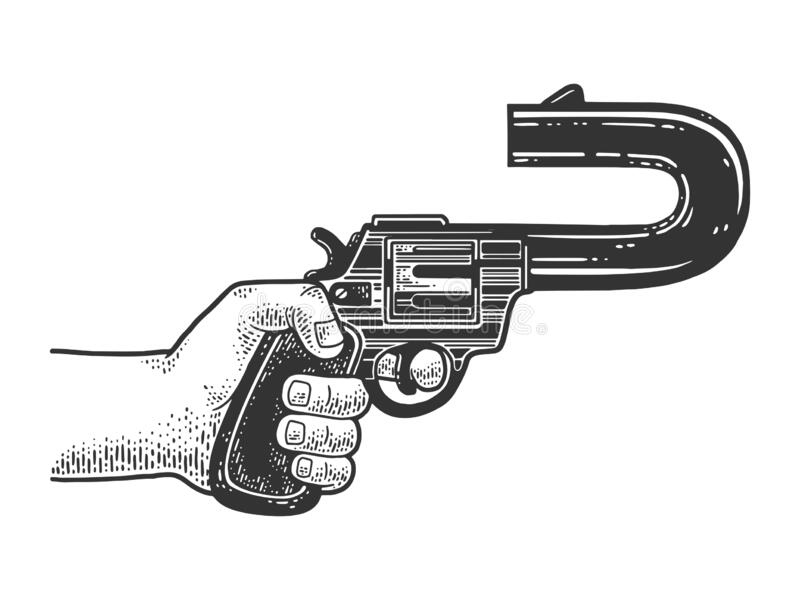
In a comment to a post here in 2018 The Progs: They Hate the Church More Than They Hate Life Itself an AD reader named “Ten” was more than four years ahead of today in analyzing the “American Right.”
Ten January 28, 2018, 12:23 PM
Dr. Jay asked, ‘Is it solipsistic in here, or is it just me’?
Maybe simplistic is a better word. Consider the facts:
1. ProgLibIsm is self-evidently psychotic. Nope, I say that not as rhetoric; it’s a plain deduction that simply observes that the left’s tenets are The Lie and appearances-centrism, hallmarks of clinical dysfunction. They postmodernistically invent reality, frame any narrative pursuant it, reject objective reality, invent new moralities, steal from others, defraud everything, project onto The Other, and morally split like crazy. No pun; they’re apparently, evidently, religiously psychotic. They’re racist, sexist abusers and they’re way inside the house. Have been for half a century, rent paid.
2. The right, being ostensible, is all but completely codependent on #1. The right simply instinctively says and does the binary, polar opposite of the left. The right does not operate from principle or position but from its own mob’s instincts and from dumb cultural inertia.
The right has no idea what conservatism is and by now actually actively rejects much of the founding structural architecture, preferring a list of statism a mile long.
In no particular order:
- Federal “social security” and MediCare/Aid medicine plus prescription drug plans;
- the nearly $1T welfare state as some permanent, arbitrary, political, “safety net” percentage of all expenditures;
- central schooling,
- the two-income household, and the resultant progressive national morality as a component of the former;
- a NASA fetish – which is socialism for scientists;
- personal income tax as “skin in the game”;
- untaxed corporatism and the central corporate oligarchy that studies show has nullified the individual’s voice in Congress in favor of laws actually written by its lobbyists;
- overt congressional graft and campaign recklessness- calling it “free speech”; central banking and the casino bank – the “investment bank” is its sanctified, pro-“capitalism” title;
- the holy primacy of the stock market, which really is stock buybacks and incredible Fed subsidies, along with algo trading, HTFs, and elite market access;
- the utter, cross-linked abyss of financial derivatives built thereon;
- progressive monetary policy, fractional reserve – because “there’s not enough money” – fiat reserve currency, and monetizing everything;
- the petro-dollar;
- endless foreign entanglements;
- militarism and military expansionism;
- the industrial war complex; military and war culture fetishism;
- veterans culture and its socialized expenses;
- militarized police, the surveillance state and sacrificing 4A for “safety”;
- and instinctively identifying about half of tax-funded public servants as HEE-roes because they wear a uniform.
There’s probably more.
3. Given this, the ultimate horror is pending: Give the ostensible right the reins of all three branches, which we have, what will they do?
They’ll forget entirely the national debt and will pump markets to bursting thus beating the dollar down to a literal penny, ending it, at which time the next collapse will justly have them alone in the national crosshairs.
Then they’ll rummage around looking for a leftist to blame, all the while yelling hoorah or semper fi from their rec room or their pickup truck or something while waving a weapon of some sort and shrieking about 2A.
I don’t think it’s explicitly, inherently solipsistic in the cavernous rightist echo chamber (no disrespect to our erudite and artistic host whatsoever because it generally isn’t in here), however in there it is typically poorly reasoned, historically narrow, and selective, jingoistic, smug, ignorant, arrogant, defensive, and not up for correction. The right, having assumed all the reigns of power only about a year ago, will proceed to do absolutely nothing to reclaim what it never should have lost.
The Current Occupant [In 2018] is therefore an accidental gift. Trump is an accidental gift the likes of which the ostensible right will first squander and then never, ever, ever see again.
The psycho left will now proceed to encroach and encroach and the ostensible right will chortle and point and then go order another triple bacon combo death meal with super-sized Goliath fries and the four-quart gulpie, run over some vegans and a windfarm to show he really means business, and finally capitulate into a smoldering heap while the American press JFK warned everybody about – before they ignored him completely – gets out tankers of ink and starts shoveling an entire nation over.
When the right finally goes extinct, which it is hellbent to do, it won’t have a single valid defense to hang around its own neck. It did this to itself.
The American right is wholly incapable of being the American right .
The American left, however, is always thinking ahead:
Biden: “We need more money. We don’t just need more money for vaccines for children, we need more money to plan for the second pandemic. There’s gonna be another pandemic.” pic.twitter.com/9LvbxiOG4Y
— Greg Price (@greg_price11) June 21, 2022
It’s no accident that his hat has a “D” on it.
President Biden fell off his bike this morning.
Just look at this pic. This is fine.
(Photo via @Sarah_Silbiger) pic.twitter.com/EzWUuOhTT6
— Steve Krakauer (@SteveKrak) June 18, 2022
Still, this body-double seemed to just walk it off enough to show up for other body-double photo ops.
Dusty and that thar hard drivin’ Wagonmaster hatch a clever plot in the years before pronouns . . . and Gilligan’s Island.
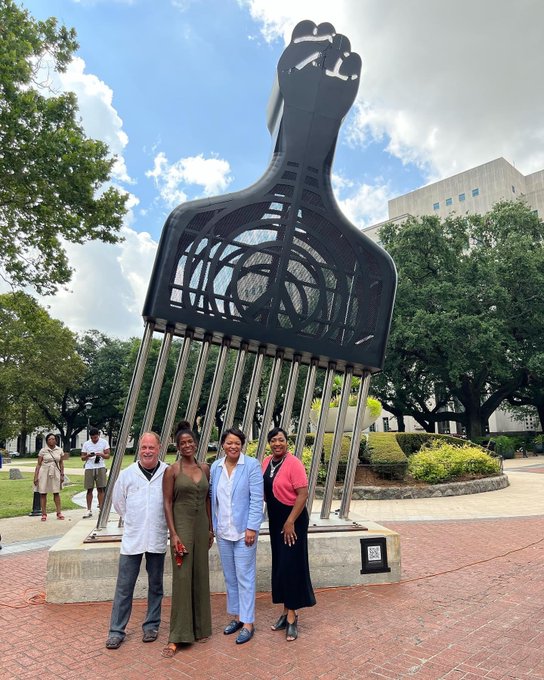
The guy in the lab coat on their left just has to be their minder.
As New Orleans’ infrastructure crumbles and innocent people are being gunned down daily, Mayor LaToya Cantrell unveils a giant “black power” hair pick in historic Lafayette Square. 🫤
Her awful leadership is absolutely devastating for those with a history and love for this city. pic.twitter.com/ggSNK9zh3l
— Ellen Carmichael 🌻 (@ellencarmichael) June 18, 2022
Wait.
So the American holiday that recognizes the end of slavery and the end of the Civil War is represented by the pan-African flag, where the slave trade was conducted and not the American flag where it was ended? pic.twitter.com/yQO54Og2uK— Chad Felix Greene 🏳️🌈 (@chadfelixg) June 18, 2022
A brilliant — if sobering — look at the 100 “Princes of the Tainted Blood” of the USA in all their finery.
The United States Senate: Who are these jackasses anyway?
I realize that despite being just 100 of the most powerful people on the planet I barely know about most of them. I’m going to post each one’s picture with gut impression, you guys tell me how yours sucks specifically. pic.twitter.com/2vmg0hp7gq
— FrogButt (@butt_watermelon) June 11, 2022
Click above to go to the main thread on Twitter
Or to just take a glance at a few of this very creepy crew …
The term “Silent Movie” from the era before synchronised recorded sound arrived with The Jazz Singer in 1927 is perhaps something of a misnomer. From the 1890s to the late 1920s the films were pretty well always accompanied by live sounds – a pianist, theatre organist even a small orchestra in the more sophisticated theaters in the big cities. Occasionally someone would even actually narrate the inter-title cards for the audience. Before the ‘talkies’ took over some of the silent movies were getting very sophisticated indeed although it has been estimated that over 75% of movies from the silent era have been lost partly because of the unstable and flammable nitrate film used at the time.
Movie posters for the silent films were often more innovatory, humorous and worldly than the work produced in the sound era – when artists ‘toiled in large publicity departments and had to comply with strict restrictions on the size and prominence of stars’ images and their names’. Dwight M. Cleveland author of Cinema on Paper: The Graphic Genius of Movie Posters wrote that the artists tried to “captured the soul” of the films they represented – “The best posters in my mind are those that reduce the entire essence of a movie into a single, vivid sheet.” Many of these posters were nothing short of a beautiful art form produced in an extraordinary time of commercial lithography.
As seen silently at Gorgeous and Exquisite Movie Posters from the Silent Era which reproduces many more.
H/T to Hyland. Here is the twitter feed it’s from.
If Biden and Trump were to hold a joint press conference, it might look something like this. pic.twitter.com/pPiqEmgaTC
— Maze (@mazemoore) June 13, 2022
 “Here’s a new recording sensation for you youngsters,” he said dolefully.
“Here’s a new recording sensation for you youngsters,” he said dolefully.
This 1785 portrait of an elderly George Washington by British painter Robt. E. Pine is perhaps the most realistic and thoughtful of the general. The way he clutches his cane suggests the advance of age; yet his face and eyes retain a steely determination. pic.twitter.com/f8aw5lbxiF
— QuintusCurtius (@QuintusCurtius) June 14, 2022

Roger Federer as Religious Experience – A top athlete’s beauty is next to impossible to describe directly. Or to evoke. Federer’s forehand is a great liquid whip, his backhand a one-hander that he can drive flat, load with topspin, or slice — the slice with such snap that the ball turns shapes in the air and skids on the grass to maybe ankle height. His serve has world-class pace and a degree of placement and variety no one else comes close to; the service motion is lithe and uneccentric, distinctive (on TV) only in a certain eel-like all-body snap at the moment of impact. His anticipation and court sense are otherworldly, and his footwork is the best in the game — as a child, he was also a soccer prodigy. All this is true, and yet none of it really explains anything or evokes the experience of watching this man play. Of witnessing, firsthand, the beauty and genius of his game. You more have to come at the aesthetic stuff obliquely, to talk around it, or — as Aquinas did with his own ineffable subject — to try to define it in terms of what it is not [continue reading…]
In case you’d like to connect without all that beastly scrolling:
- First Job in Paradise
- For My Father’s soul
- My father’s shaves
- Ginsberg will forgive me
- ”I’m lonely. I’ll make me a man”
- Bill Maher Up from Blobfish
- Their lies instead of ours for a change
- Half of an eight hour movie
- Czarina Catherine’s Crib
- Whole roasted tandoori lamb
- Russians passing gas
- 2 views of worthless money
- In a month that begins with Memorial Day and includes D-Day, we don’t need to spend four weeks on the lamest among us.
[Written February, 2017] When the fog forms in Paradise all my ghosts come out, moving like wraiths behind the mist, believing no one can see them. But I do. Everywhere in this small town in northern California in which I was a young boy and to which I have returned as an old man, I often sense that boy and those long ago moments.
This morning the fog was thick here on the ridge as I returned from an errand down on Lucky John Road; a road I had not been on for over 60 years. Even before I came over the crest of the hill and started down the far side my back brain told me there was a brook at the bottom. And sure enough, in a moment, my car passed over the brook as it flowed in a culvert from one side of the road to the other.
Today there were a number of tidy cookie-cutter contractor-built homes on either side complete with their gardens, garages, and water-features. The once forest-thick pines were thinned out to garden specs.
The little old lady’s ramshackle homemade house was long gone to landfill… as was the little old lady herself. Still, as I pulled the car over in the fog and looked around, they appeared. Ghosts moving behind today’s new morning; a kind of Balinese shadow puppet epic projected on the far side of the atmosphere by the lantern of memory.
The last time I had been to the brook I was 11 and I walked. I walked from my house on the canyon’s edge half a mile to where the brook meandered out of the pines and flowed under Lucky John Road.
I did it because my father told me to do it.
I did it because my father had decided that at 11 it was time I had “A Job.”
My father believed in boys having A Job and having one as soon as possible.
One evening shortly after my 11th December birthday he called me aside. “There’s an old lady named Miss Helen over the hill who needs help,” he told me. “She’s getting on and she has no family. She needs help chopping wood for her heat and other chores.” (“Dad, please.”) “No backtalk. I’ve already told her you’d be there tomorrow afternoon.” (“Oh come on, dad.”) “Did I mention she was going to pay you.” (“Please, dad…. Oh? How much?”) “Four bucks a week….” (“When can I start?”) [continue reading…]

The Mountain of the Holy Cross
The Interface
–for my father, Albert John Van der Leun
1.
The empty rituals and dusty opulence
of the nightmare’s obvious ending dwindle,
and the sounds of departing automobiles
fade into the thrum beyond the cul-de-sac.
Inside the house, my mother sits quietly,
surrounded by the plates of finger food
that everybody brought and no one ate,
and wonders if she should begin to take
his clothes from the closet, call the Goodwill.
Some blocks away, the Unitarian minister
hangs his vestments on a peg,
and goes to lunch.
I drive the Skyway to the town named Paradise,
park his car at the canyon’s rim, and sit awhile
in the hot silence of the afternoon looking out
at the far Sierras where, in June, the winter lingers.
On the seat beside me, a well-taped cardboard cube
contains what remains of my father. I step out
and, taking the cube under my arm, begin to climb
down the canyon’s lava wall to the stream below.
The going is slow, but we get to the bottom by and by
and sitting on some moss, we rest awhile, the cube and I,
beside the snow-chilled stream.
The place we have come to is where the pines lean out
from the rounded boulders lodged above the stream;
where what the stream saves builds up in the backwater,
making in the mounds of matter an inventory of the year:
Rusted tins slumped under the fallen sighs of weeds,
diminishing echoes of the swallows’ chevroned wings,
laughs buoyed in the hollow belly of stunted trees,
gears, tires, the bones of birds, brilliant pebbles,
rasping windwhish of leaf fall crushed to dust,
the thunk of bone on bark, the thud of earth on wood,
the silence of soft ash sifted onto slow chill waters.
And in such silence, he fades forever.
2.
The stream, its waters revolving round
through river, ocean, clouds, and rain,
bears away the hands and eyes,
but still the memory remains,
answering, in pantomime,
the questions never asked:
Are these reflections but the world without,
carried on but never borne onward, westward,
towards sunlight glazed on sea’s thigh?
Or are such frail forms shaped upon the water
all the things that are, and we above immersed in air
the forms that fade, only the mere mirrors of the stream?
Is this life all that is and, once life lost,
the end of all that was, with nothing
left to be, with no pine wind to taste,
nor sun to dapple mind with dream?
Is All that Is but ash dissolving,
our lives mere rain in circles falling?
Or are we yet the center of such circles?
Is our fall a rise beyond the shawl of night,
where all shall shine contained within
that single soul, that heart of stars;
that space where sun and water meet,
that golden hand whose wounded palm
once we have shimmered into sunlight,
still remains held out forever
and ever open even in the coldest light of day.
 My father, Albert John “Van” Van der Leun was a Gillette man. He liked to look sharp, feel sharp and be sharp. I never saw him unshaven except very early in the morning before he’d had a chance to lather up. Beards? He was a child of the hard times, of the Depression, and beards were for bums.
My father, Albert John “Van” Van der Leun was a Gillette man. He liked to look sharp, feel sharp and be sharp. I never saw him unshaven except very early in the morning before he’d had a chance to lather up. Beards? He was a child of the hard times, of the Depression, and beards were for bums.
When it came to haircuts my father favored the flat-top for himself and his sons. Butch Wax was a staple in our house where four males could go through a jar a week. He grudgingly accepted my 3-inch “Ivy League” cut once I went off to the university but was never reconciled to the longer and longer hippy hair that came later.
My father was a sharp-dressed man. He liked the snap of a freshly laundered, starched, and ironed white shirt. His suits were always cleaned and pressed and his shoes shined to a military gloss. I still have many of his gold and silver tie-tacks and cuff-links and although I seldom wear them, I do wear them. They make me feel sharp.
As the eldest male in his family of five children, he was the one that dropped out of high school to work when the 1930s started to bite, and his own father proved less than…. well, dependable when it came to providing.
He went out to Los Angeles to open a service station since, next to my mother, he loved cars. The war caught up with him there and he was, due to a heart murmur and complications from rheumatic fever, declared unfit for service. He then got his high-school degree by studying books and passing tests most university graduates today would fail. He was sharp enough to teach himself chemistry. He got a job working on new formulations of explosives until the end of the war. Then, with a wife and two sons, he went back to what he loved, automobiles; filling, fixing, and selling.
My father was a car salesman and a good one. He was a sharp salesman; one that was always looking for what the customer actually wanted as well as what the customer could really afford. For every minute selling, he spent five qualifying. He didn’t boast about being the top salesman at the lot, although he usually was. He did boast that he had the fewest repos of all the salesmen and the most repeat customers. He liked to sell people cars that he knew they could afford. His most repeated admonition to me was, “Never try to profit off of another’s misfortune.”
My father hated smooth. He liked plain talk and despised euphemism and manipulation, especially among salesmen. He’d fire car salesmen working under him if he caught them lying or even shading the truth to make a sale. “A man that will lie to a customer will lie to you,” he’d say. He looked at every deal brought to him for approval and if the buyer didn’t have the credit to carry the loan he wouldn’t approve it. “Bad for the buyer and worse for the business,” he’d say. “If you let a man buy what he can’t afford on credit, you’re going to be taking the car back and making an enemy. We’re here to get cars off the lot, not see them come back after repossession. A man who can’t make his car payments is a man who can’t maintain his car. A salesman who’s so smooth he’s selling people cars bigger than they can afford is a salesman who’s taking a kickback from the repoman.”
My father was a man for whom honor was essential. Did my father sell as many cars as he could have? Probably not, but he raised three boys well and without want. My mother worked hard, day in and day out, in her career as a mother of three and did, in the final analysis, a pretty good job of it. My father saved carefully and retired all debt as quickly as possible. When he died, a relatively young man after years of expensive medical treatments, my mother was still set up comfortably for life. He loved my mother devotedly until death parted them and she has never loved another for the 46 more years of her life.
My father despised debt and avoided credit. Educated by himself, he’d seen the worst of the depression and, during one hard winter in Pittsburgh in the 30s, had to patrol the railroad tracks hoping to pick up lumps of coal fallen from the trains in order to heat his home.
My father was a life-long Democrat and despised Richard Nixon for his five-o’clock shadow, his smooth palaver, and his treatment of Helen Gahagan Douglas in an early California election. But in the Nixon-Kennedy face-off, he felt the same way about Kennedy. “He looks sharp but when you listen to him he’s just too smooth a talker.”
Like he said, “A salesman who’s so smooth he’s selling people cars bigger than they can afford is a salesman who’s taking a kickback from the repoman.”
Like I said, my father was a sharp man.
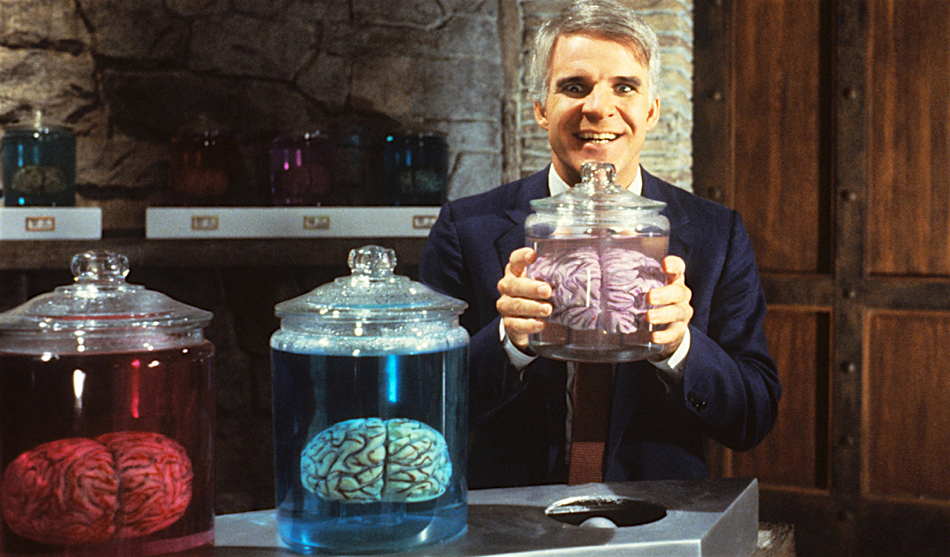
For Karl Rove Solomon
I SAW the second-best minds of my not-so-Great Generation destroyed by Bush Trump Derangement Syndrome, pasty, paunchy, tenured, and not looking too sharp naked,
bullshitting themselves through the African-American streets at cocktail hour lusting for a Cialis refill and one black friend on the down-low,
aging hair-plugged hipsters burning for their ancient political connection to the White House through the machinations of monied moonbats,
who warred on poverty and Blackwater’s Wal-Mart and bulbous-eyed and still high from some bad acid in 1968 set up no-smoking zones on tobacco farms in the unnatural darkness of Darwinistic delusions floating a few more half-baked secular notions like “Let’s all worship Zero!”,
who on the Burly Bears float of gay pride bared their man-breasts and, she/it/he, bleated their vaginas’ mawkish monologues to John Kennedy’s ghost under the Capitol Dome and french-kissed Mohammedan agents in the gore-drenched redrum rooms of Guantanamo, [continue reading…]
Full screen will engulf you.
Driving home last night under a mackerel sky into a sunset tinged with molten tungsten, this poem came into my mind from some decades ago long-closed account in my young man’s memory bank. Like all cherished poems this one converts the Truth into a memorable myth. Lonely long-distance atheists lashed to their academic Pequot would like this poem to be forgotten but the people will never let it go. [continue reading…]

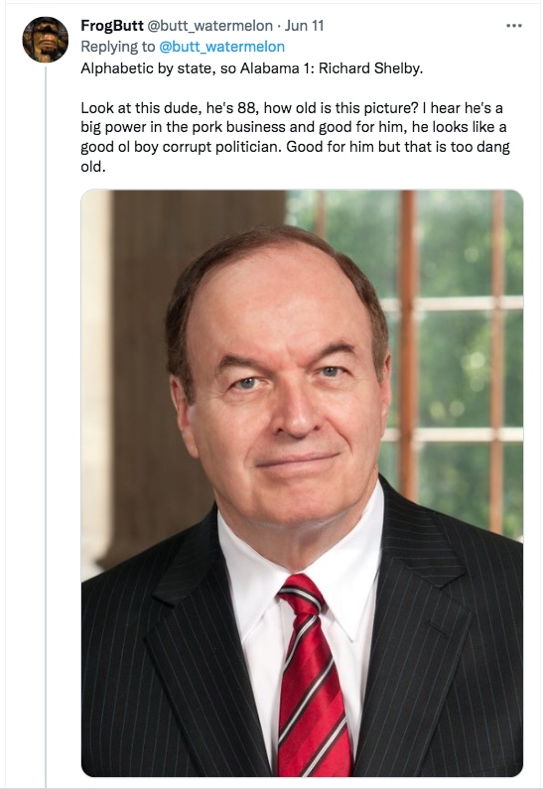

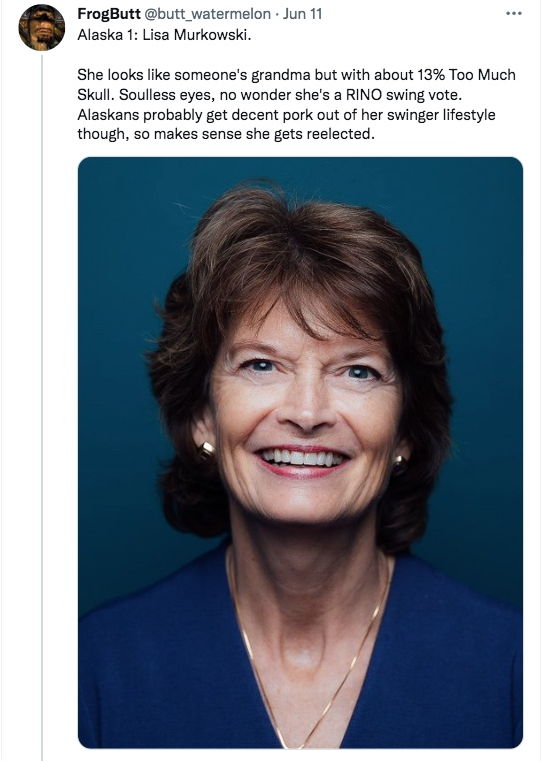
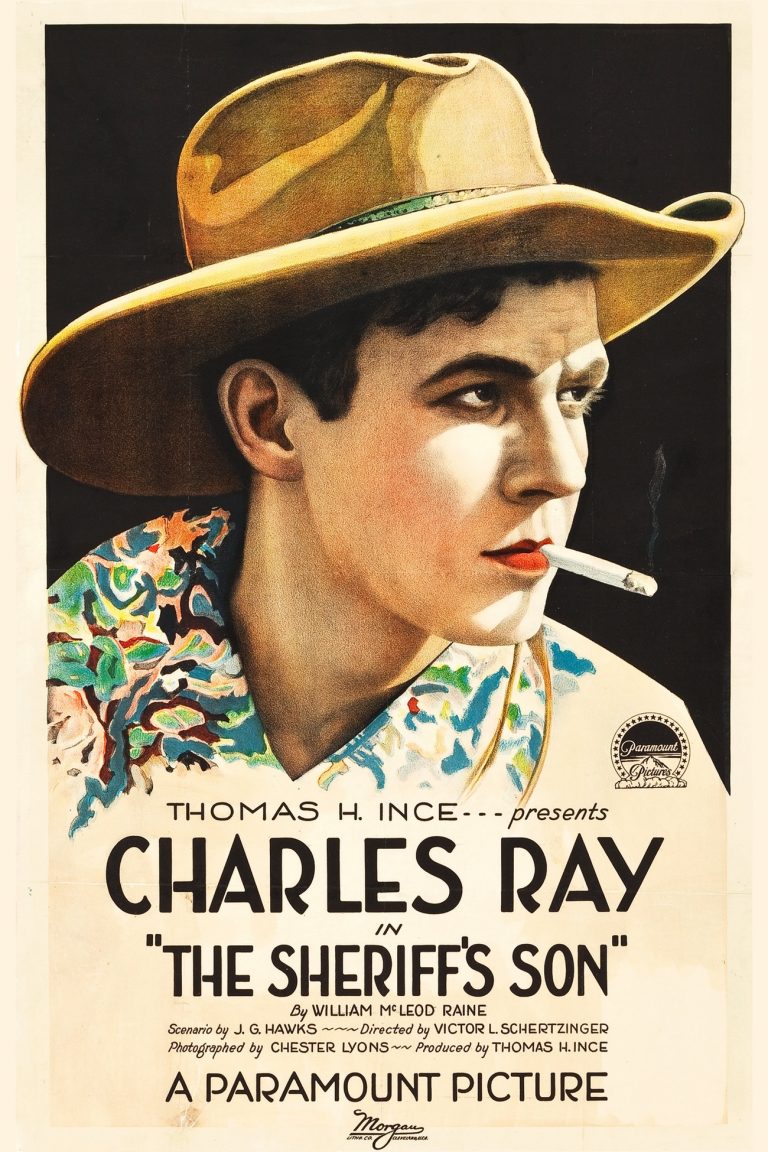
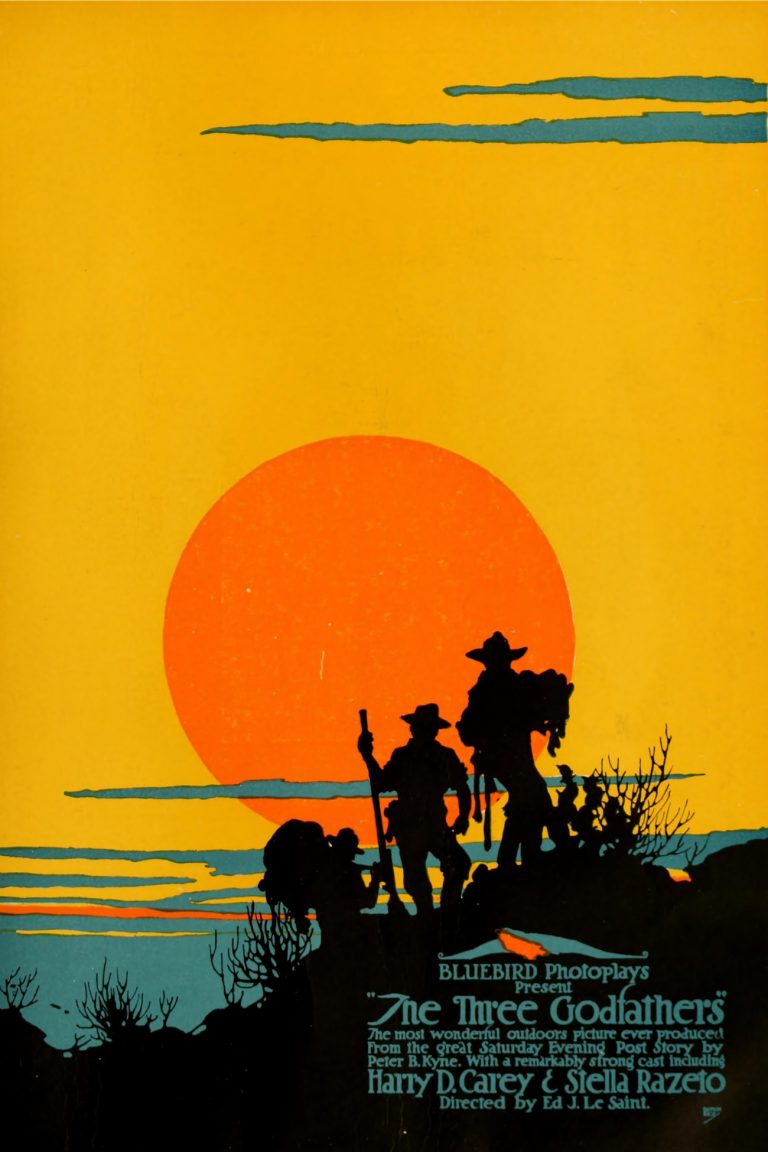
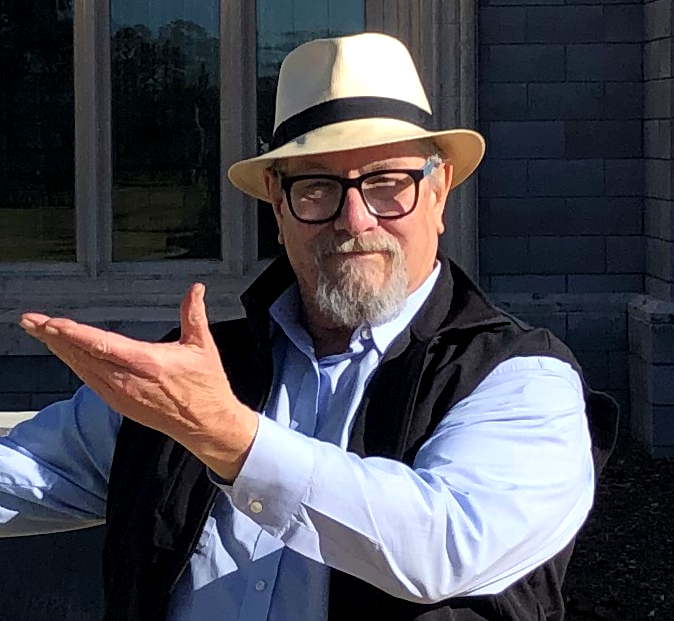 Gerard Van der Leun
Gerard Van der Leun



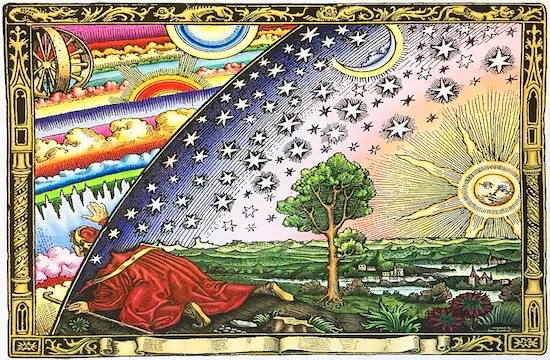

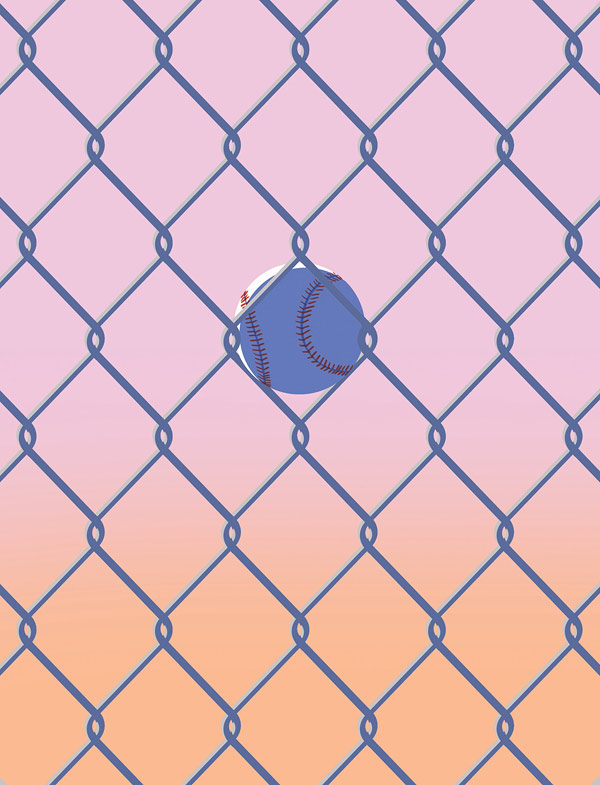
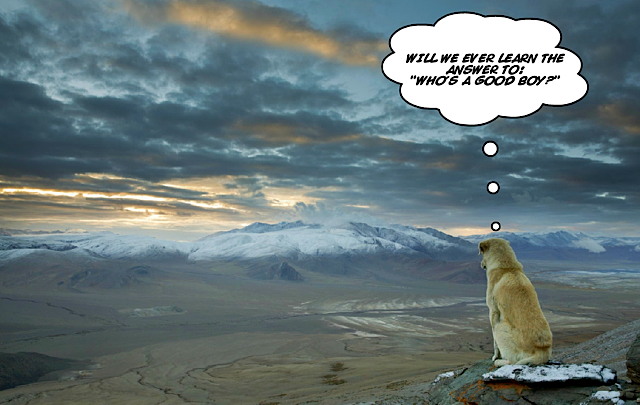

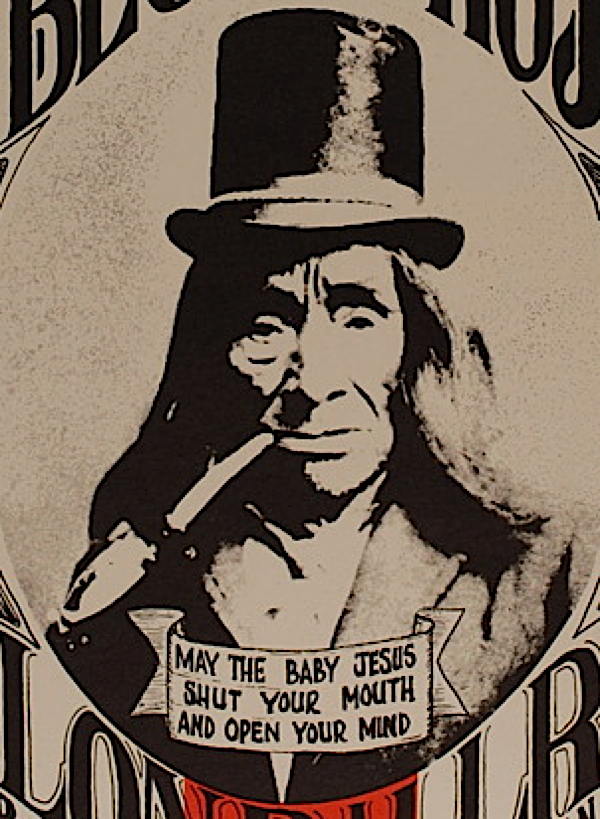

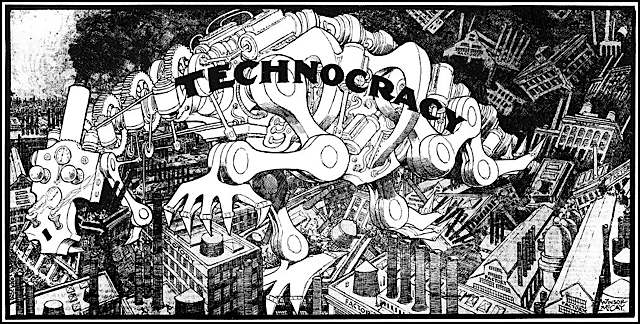

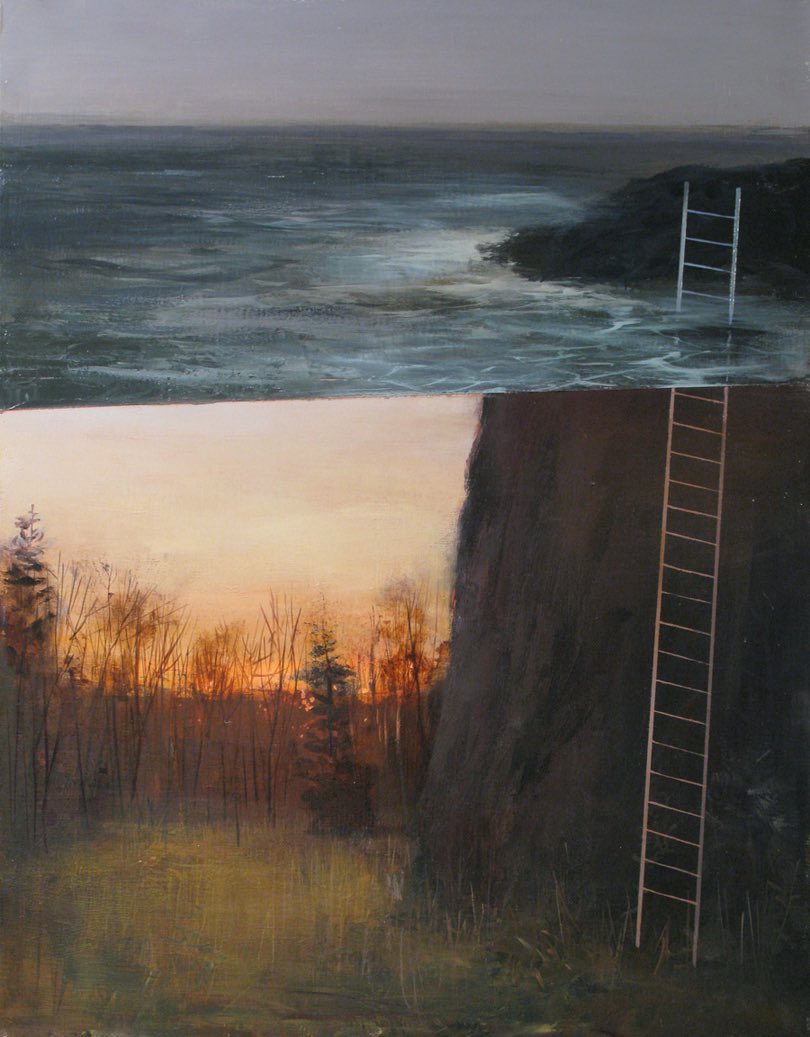

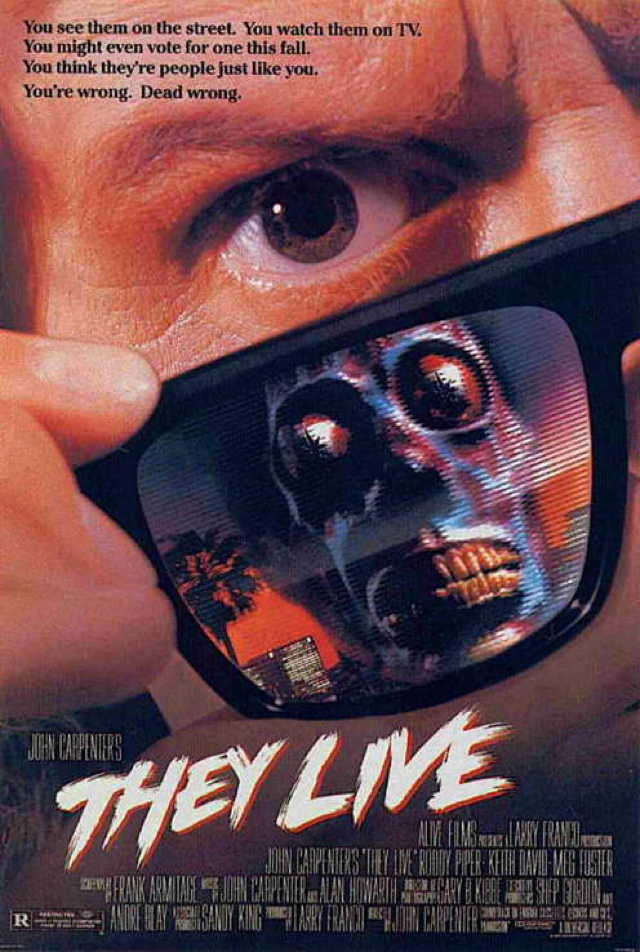

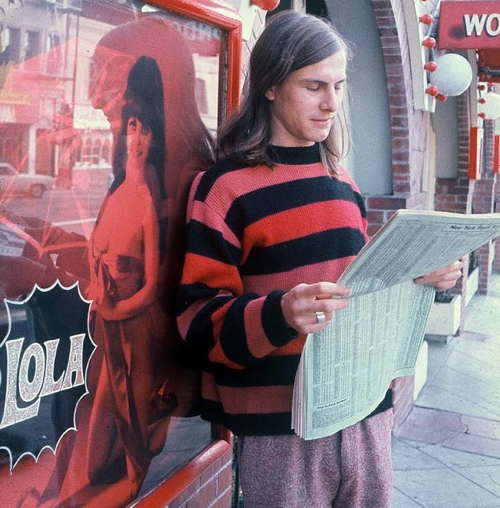
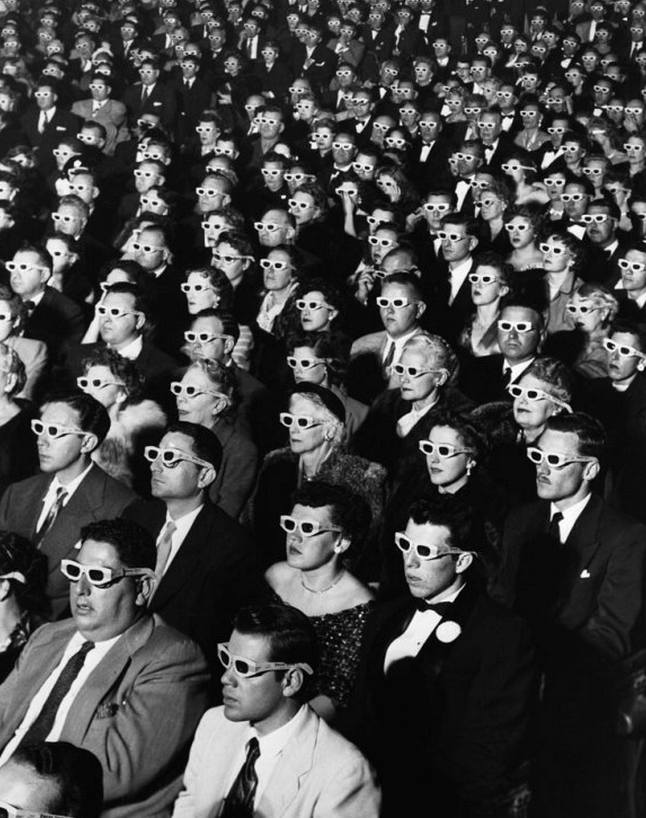



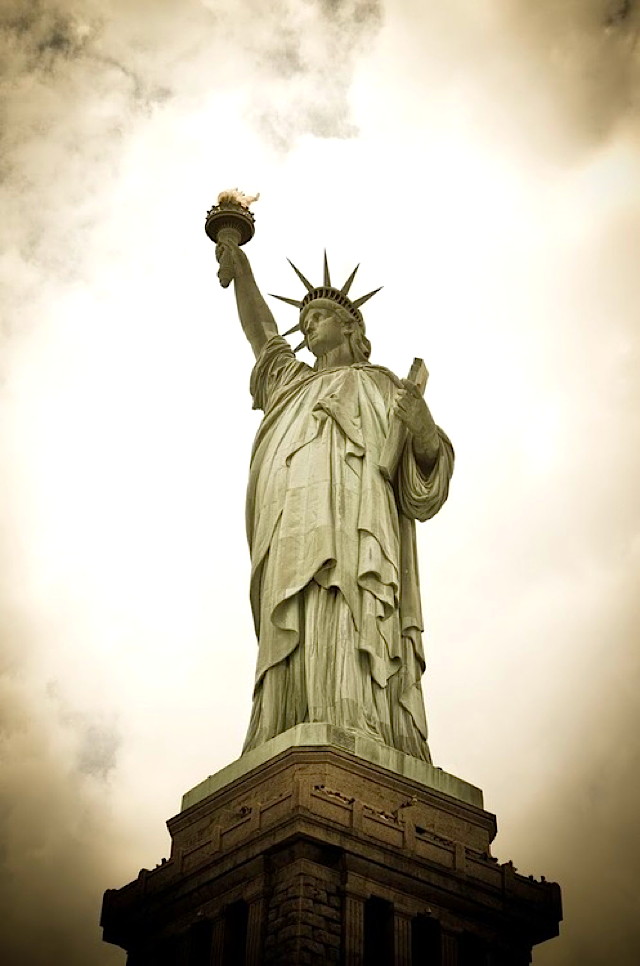


Your Say